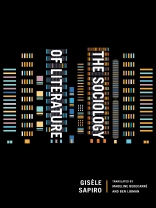The Sociology of Literature is a pithy primer on the history, affordances, and potential futures of this growing field of study, which finds its origins in the French Enlightenment, and its most salient expression as a sociological pursuit in the work of Pierre Bourdieu. Addressing the epistemological premises of the field at present, the book also refutes the common criticism that the sociology of literature does not take the text to be the central object of study. From this rebuttal, Gisèle Sapiro, the field’s leading theorist, is able to demonstrate convincingly one of the greatest affordances of the discipline: its in-built methods for accounting for the roles and behaviors of agents and institutions (publishing houses, prize committees, etc.) in the circulation and reception of texts. While Sapiro emphasizes the rich interdisciplinary nature of the approach on display, articulating the way in which it draws on literary history, sociology, postcolonial studies, book history, gender studies, and media studies, among others, the book also stands as a defense of the sociology of literature as a discipline in its own right.
विषयसूची
Introduction
I: Sociological Theories and Approaches to Literature
II: The Social Conditions for the Production of Literary Works
III: The Sociology of Literary Works
IV: Sociology of Reception
Conclusion
लेखक के बारे में
Gisèle Sapiro is CNRS Research Director and Professor of Sociology at the École des Hautes Études en Sciences Sociales (EHESS). She is the author of
The French Writers’ War (1940–1953) (2014).












